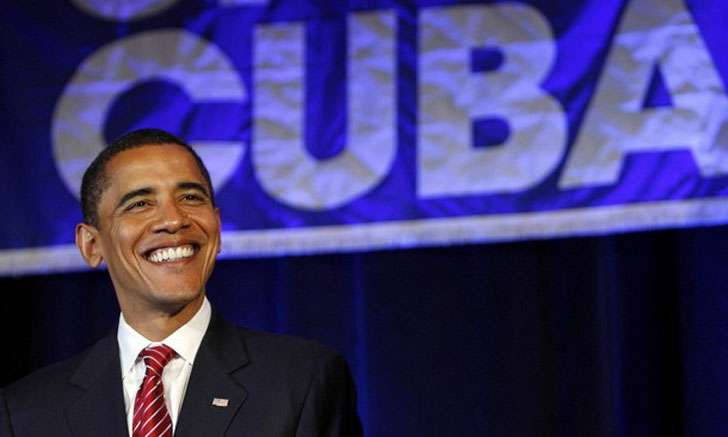GOP Senator: Economic Liberty Will Free Cubans Faster Than Embargo (Duh)
"The economic agenda *is* the human rights agenda," says Arizona's Jeff Flake.

No politician of either major party has been more dedicated over the past 15 years to helping the people of Cuba than Sen. Jeff Flake, the Arizona Republican. Flake is among the Americans traveling with President Obama on his historic trip to Cuba this week.
While party-mates such as Sens. Marco Rubio and Ted Cruz (who both have Cuban roots) talk about continuing economic boycotts and diplomatic isolation despite the clear failure of such policies to improve the life of people left behind on the Castro brothers' island prison, Flake has two basic arguments about why we should be trading with Cuba.
First, as he told Reason in an exclusive interview during a late-January trip to Havana, "These aren't sanctions on Cubans, these are sanctions on Americans. When others who I normally agree with—Marco Rubio and others—say these latest moves by the president are a concession to the Castros or to the regime, they're wrong. It's not a concession to allow your own population to travel. That's an expression of freedom."
Second, as he writes in a piece for the Tucson Daily Star,
The cash-strapped Castro regime has laid off thousands of government workers and has expanded legal opportunities in the private sector. This has given way to a dramatic rise in the number of entrepreneurs running restaurants, bed and breakfasts, taxi services, barbershops, beauty salons and much more. In fact, it is estimated that as many as a third of Cuba's 5 million workers are now operating in Cuba's private sector.
This exponential expansion of Cuba's entrepreneurial class would not have happened were it not for U.S. policy changes in 2009 that have led to an explosion of travel and remittances among Cuban Americans. Some suggest that remittances to the island are responsible for 70 to 80 percent of the capital used in small businesses in Cuba.
Economist Milton Friedman wrote that economic freedom is "an indispensable means toward the achievement of political freedom." Far from being concessions, changes in our policy toward Cuba are reinforcing and advancing opportunities for Cubans in the private sector. Citizens who are totally dependent on government for their livelihood are subject to the whims of all-powerful leaders in a way that those who are economically independent are not.
Flake isn't a brain-addled lefty complaining that Cuba is about to be "ruined" by a profusion of Starbucks or new cars. He's somebody deeply committed to helping the wreteched of the Earth prosper through economic and political freedom. As he told Reason, "Cuba is poor because they have a bankrupt socialist system here. Full stop." Indeed, one of his reasons for lifting the travel ban was that more Americans should see how a government-controlled economy destroys everything. He told us that Lech Walesa, the great Polish anti-communist rebel, told him: "I have no idea why you guys have a museum of socialism 90 miles from your shore and you won't let anybody visit it."
For decades, Cuba has subsisted on allowances from the Soviet Union and, later, Venezueala. Those regimes are either dead or dead broke, which is one of the reasons why the Castros have allowed an increase in private-sector economic activity. As Flake and Milton Friedman suggest, that's a genie that doesn't go easily back into the bottle, especially if as many as a third of the Cuban workforce is now in the private sector. With money comes an appetite for more freedom in how to spend it (and how to earn it).
Certainly Flake's right that U.S. Cold War policy toward Cuba has failed spectacularly to bring down the Castro regime and he's boldly crossed party lines to praise President Obama for lifting all sorts of restrictions on American citizens (the trade embargo must be changed by Congress). There will still be problems, of course, and it's hardly heartening that the Cuban government arrested a bunch of peaceful protestors just hours before Obama landed yesterday. But change doesn't happen by simply doing the same thing over and over again and hoping for a different outcome. With Obama's trip to Cuba, there is at least some chance that the island nation will become not just more prosperous but more free too.
Related video: In 2012, Kennedy interviewed former Reason staffer Michael Moynihan about "the politics of travel guides," particularly when it comes to fetishizing Cuban poverty. Take a look:


Show Comments (66)